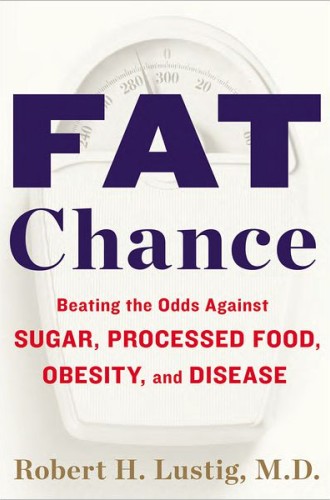Fat of the land
"Obesity is not a choice,” says Robert H. Lustig, and he ought to know. He’s a pediatric endocrinologist who has devoted the last couple of decades to studying obesity and treating obese children. He is also a captivating speaker. His 2009 YouTube video Sugar: The Bitter Truth has attracted some 3.5 million hits even though it’s educational and 90 minutes long.
Blame is the last thing overweight people need, Lustig argues. Look at what’s happening: “The percentage of obese humans globally has doubled in the past 28 years. . . . Even people in developing countries are obese,” he writes. In the United States, obesity is increasing at the greatest rate among children between ages two and five. Even our pets are getting fat. Do we really believe that in just one generation the whole world has made an unprecedented turn toward sloth and gluttony?
Read our latest issue or browse back issues.
Unlikely, says Lustig, in this thoroughly researched if meandering book that would probably pack more of a punch if he had made it three books instead of one. PBS watchers might be fascinated by a book called, say, Hormones Run Amok, explaining how our bodies handle the wrong kinds or amounts of food. Activists could fuel their rage with Evil Twins, showing how governments and the food industry collaborate to make us fatter and sicker. Self-help fans (of whom Lustig is not fond) might thrill to Never Diet Again, an eating-and-exercise bible promising not only lasting weight reduction but also vastly improved health.
In all three approaches Lustig’s number one concern is health, not weight. If we were just getting rounder, there would be no problem. “A full 20 percent of morbidly obese persons are metabolically healthy and have normal life spans,” he notes. But as obesity has increased, so has a wide range of diseases associated with what is called metabolic syndrome: type 2 diabetes, lipid disorders, nonalcoholic fatty liver disease, hypertension, polycystic ovarian disease, heart disease, cancer and possibly dementia. All of these diseases are more prevalent today than they were a generation ago. Most are associated with insulin resistance, which is the body’s response to the flood of insulin released to deal with the excess sugars most of us imbibe. And being thin is no guarantee of good health: although 80 percent of the extremely obese have abnormal metabolic profiles, so do up to 40 percent of normal-weight people.
Lustig explains why not all calories are equal, how hormones affect our eating patterns, the various ways food can take up residence in our fat cells, and why some scientists think food, like alcohol and drugs, can be physically addictive. Even if, like me, you blew off high-school chemistry, you’ll be able to follow most of his explanations.
A lot of our health problems today can be traced to the inordinate amount of fructose—fruit sugar—we consume, Lustig believes. Fructose is a principal component of high-fructose corn syrup—a government-subsidized, cheap sweetener used in everything from soft drinks to pasta sauce to whole grain bread. Fructose is also found in table sugar, honey, maple syrup, agave nectar and—the newest attempt to make consumers think that something is healthy when it isn’t—concentrated fruit sweeteners. Though actual fruit is good for us, when it is turned into fruit juice it gives us a shot of straight fructose equal to that in soft drinks. “Our current fructose consumption has increased fivefold compared to a hundred years ago,” he writes, “and has more than doubled in the last 30 years. . . . World sugar consumption has tripled in the last 50 years, while the population has only doubled.”
Why have we all gone over to the sweet side? Lustig apportions the blame equally between the government and the food industry, and he has little faith in either. Makers of convenience foods stuff them with sugar to lengthen shelf life and attract consumers, especially children. Soft drinks and junk foods are readily available in schools and in corner stores pandering to the after-school trade. “Thus far, there are no government-imposed bans on the marketing of high-sugar-content products to children in the United States,” he writes—or anywhere else except Chile, which “in May 2012 became the first nation to ban junk food marketing to children.” Indeed, government agencies and legislators actively support suppliers of dangerous foods, in spite of abundant research showing the harmful effects of their products. And succumbing to pressure from the Sugar Association, they have even suppressed evidence that might damage junk food sales.
So can nothing be done? Are we doomed to ever-expanding waistlines and ever-shortening life spans? Oddly, despite telling us that “ascribing personal responsibility to the obese individual is not a rational argument” because “the obesity pandemic is due to our altered biochemistry, which is a result of our altered environment,” Lustig offers suggestions that may help us lose weight and improve our health. We can alter our food environment, for example, by choosing certain foods and shunning others, especially soft drinks and fruit juices. We can alter our hormonal environment by eating more fiber and less sugar, exercising, eating breakfast with protein and getting more sleep. We can possibly even alter our political environment by joining with others to protest what the alliance between government and the food industry is doing to our health. “Public outcry is a powerful force for change,” Lusting writes, “and it can work in obesity.” Somehow this advice sounds a lot like taking personal responsibility.
So just how pessimistic is Lustig? His title makes one think that on the optimism scale he’s somewhere between Eeyore and Puddleglum. Fat chance that our bodies can be healthy, given what we’re feeding them. Fat chance that our elected officials, deep in the pockets of the food industry, are going to insist on health-promoting regulations. Fat chance that the food industry is going to change practices that help it sell ever greater quantities of high-sugar food at ever more profitable prices. Fat chance that individuals, hormonally compromised by processed foods and an obesogenic environment, will be able to restore their own health through careful eating.
And yet he ends on a hopeful note:
With enough public clamor, tectonic shifts in policy do become possible. Take, for instance, bans on smoking in public, the use of designated drivers, airbags in cars, and condom dispensers in public bathrooms. All unfathomable thirty years ago. Your voice changed the world. It can be a new world . . . yet again.
I do not know if Lustig is a religious man, though he throws in the occasional biblical allusion. But I am a religious woman, and I keep seeing a theological structure to his apparently contradictory views. Lustig does sound confused about the role of free will, but no more so than St. Paul. For example, the forbidden fruit—excellent in itself, but corrupted into fructose. What was supposed to bring life now brings disease and death. As a result all of us, no matter what we look like externally, are endangered by internal processes over which we have no control. The problem begins before we are born and continues throughout our lives. On our own, we cannot escape.
Most people have no idea that their way of life is killing them. Some of us do know what is “holy, and just, and good,” but there is “another law in [our] members, warring against the law of [our] mind.” Blameless, we sicken and die. Enlightened, we continue down the wrong path. We cry out for someone to rescue us, but we’re pretty sure it won’t be the kings or merchants of the earth: they have sold their souls to the false god Mammon.
Though we know we can’t save ourselves from metabolic disease, God forbid that we use this knowledge as an excuse. If we continue to load up on Krispy Kremes and Coke, we’ll stay on the broad path that leads to destruction. We can’t help being born with too many fat cells, but we don’t have to feed them. We can eat real (not processed) food. We can exercise. We can join with others to demand accountability from the kings and merchants. We can hope for the time when the fruit is restored and the leaves of the tree are for the healing of the nations.
The only thing lacking in Lustig’s food theology is a savior. Maybe that’s why he fears there’s fat chance anything will ever change.





